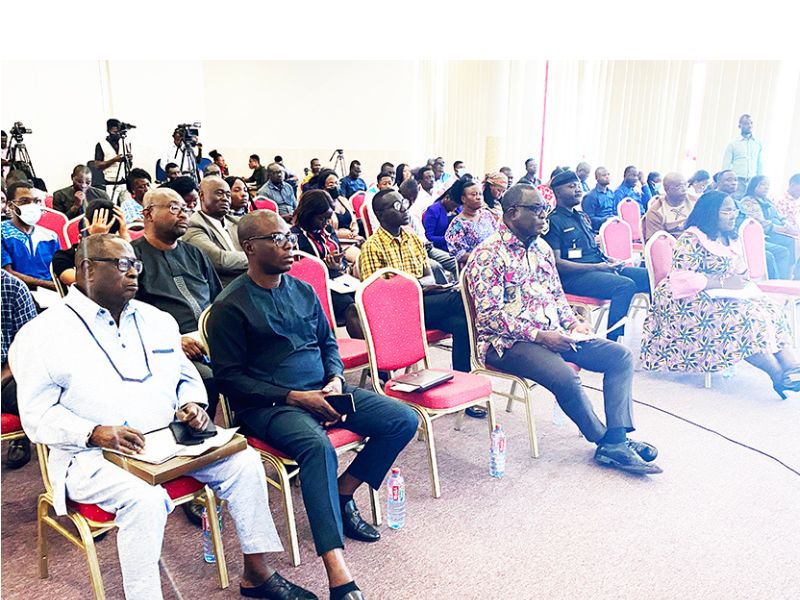
The Executive Secretary of the Ghana Anti-corruption Coalition, Beauty EmefaNarteh has urged journalists to follow up on anti-corruption cases in the country.
Speaking at a Public Forum on the theme: “Declaration of Assets by Public Office Holders and the fight against corruption in Ghana” organised by the Media Foundation of West Africa (MFWA), in Accra,on Tuesday, she noted that the media plays a vital role in the dissemination of information to the public and that it is important for them to recognise the fight against corruption.
On the Declaration of Assets, she emphasised that public office holders who should declare their assets before the assumption of office, but some of them have still not done it.
The Executive Director of Ghana Integrity Initiative, Mrs. Linda Ofori-Kwafo, on her part said “the culture of integrity will make our country more productive, our public sector institutions efficient, effective and more trusted. In short, integrity can deliver better society and lives.”
To her, there was the need to focus on anti-legislation and in particular Ghana’s asset declaration regime.
Quoting the 2021 Corruption Perception Index, CHRAJ and Ghana Statistical Service, Ghana Integrity of Public Services Survey, 2021 and Afrobarometer Round 9 findings for 2021/2022, she argued that one needed not be told that corruption remained a key developmental challenge in Ghana.
“The Afrobarometer findings showed how the public perceives officials of key accountability institutions including the Police, Office of the Presidency, Parliament, Judges and Magistrates and Tax officials as the top five most corrupt institutions.
Let me not bore you with the findings of the 2021 Auditors General Report and the recent work and findings of the OSP, which demonstrates the extent of the rot in our public service and lives.”
Mrs Linda Ofori-Kwafo contended that the importance of an effective assert declaration regime to the fight against corruption cannot be over emphasised, adding that Public sector officials who occupy positions of power and have managerial control over government budgets and spending can be particularly vulnerable to corruption.
To her, asset declarations could play an important role in focusing on interest of public officials. “It could help to detect abuse of power and its transformation into unexplained wealth, hence a tool for uncovering bribery and other forms of corruption such as nepotism, conflicts of interest and undue advantage.”
If asset declaration regime is effectively implemented, Mrs. Linda Ofori-Kwafo said, it could make it easier to identify potential cases of enrichment, contribute to anti-money laundering efforts and asset recovery efforts, help manage and provide evidence of illicit flows.
The Forum brought together anti-corruption campaigners, legal experts, CSOs such as CHRAJ, Audit Service, Parliament, Attorney-General, Journalists and media support groups.








